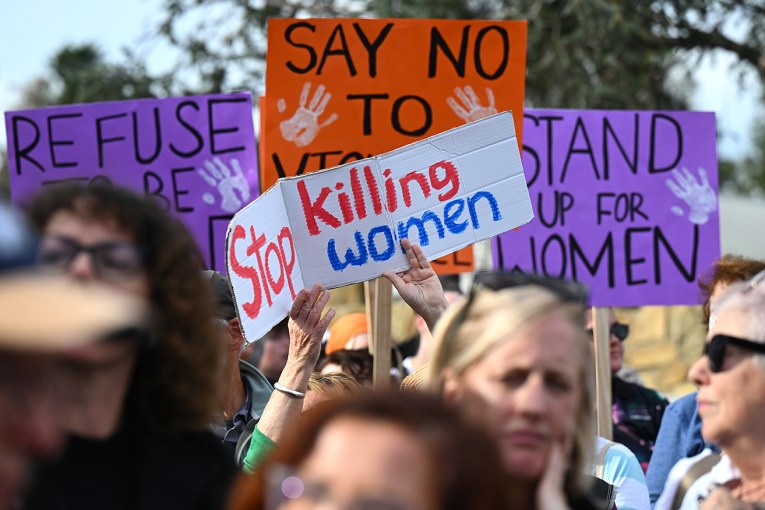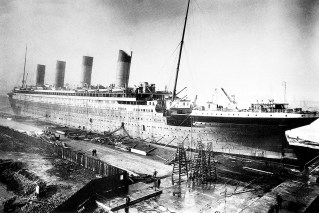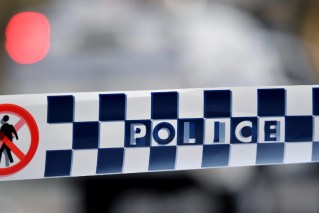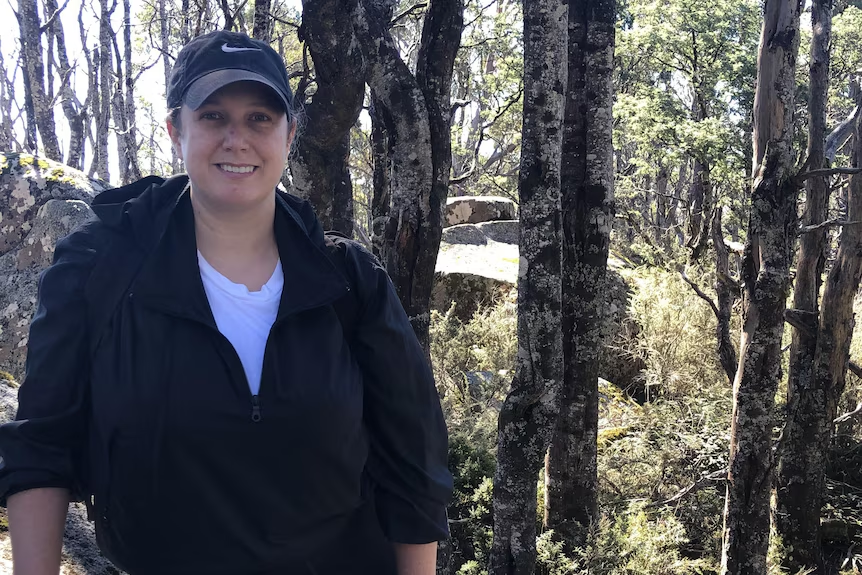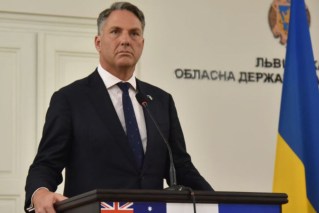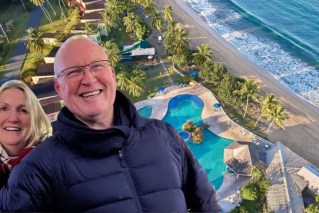Poll finds many reluctant to change the constitution

Australians are worried about changing the constitution in the Voice referendum, a poll that gauged risk-averse attitudes finds.
Pollster George Hasanakos from DemosAU said Australians were displaying “nuanced” attitudes about the referendum that suggests many people are thinking about changing the constitution with a degree of trepidation.
“When we looked at some of the attitudes we feel the difference is voters who are risk averse,” Hasanakos said.
“It’s a significant slice of voters … we have it at 15 per cent.”
In data released to TND, DemosAU polling surveyed 7341 people over a three-month period, 34 per cent of whom were contacted in September.
The figures were processed with a regression model in an attempt to generate insights into population-wide voting intentions.
The poll suggested that 15 per cent of voters think changing the constitution is risky.
At the top line, No had a 54-38 lead over Yes including responses from undecided voters who were pushed to make a decision, with 7 per cent still responding “don’t know” when asked.
Hasanaksos said risk aversion was driving a cohort of voters towards voting no.
“People are cautious. Some voters think [voting] No is the same thing as no change,” Hasanakos said.
The data is a further dive into the steady slide in support for the Indigenous Voice referendum. Some polls have found that as few as 38 per cent of voters are prepared to say yes.
The referendum also faces a particular challenge because it needs a double majority – it needs to win in four of the six states as well convince a majority of voters overall.

The split between voting intentions of urban and rural voters. Source: DemosAU
The bar is high for change
Crucially – like all polling – the data cannot predict how the referendum result will turn out and cannot even be taken as a definitive guide of nationwide voting intentions ahead of the October 14 vote.
What we do know is the bar for constitutional change has, at least historically, been difficult to surmount, with risk-averse attitudes among voters likely to play a key role.
Hasanakos said attitudes suggest that like past referenda, the Yes campaign will need to convince voters not just of the merits of the Voice and constitutional recognition, but also on the case for changing the constitution in the first place.
“People are far more nuanced than voting intentions,” Hasanakos said.
“You can’t reduce anybody to a question … politics isn’t two dimensional.”
The Voice debate will intensify as both the Yes and No campaigns pitch to voters before polling day on October 14.

The data has uncovered a significant difference of opinion between older and younger voters on the Voice. Image: DemosAU
Clear divides among Australians
Other clear divides also emerge in the DemosAU data, with a No vote being particularly strong among Australians over 45 – who make up more than half of the country’s 17 million voters.
“There is an obvious cleavage in attitudes towards the referendum between people aged under 45 and those aged over 45, and there are a lot more voters on the older side of that dividing line,” Hasanakos said.
The survey also found that No voters were more welded onto their view than those in favour of Yes.
The No campaign is also strongly ahead in regional and outer-metro areas, while the Yes remains in front only slightly in inner-urban areas.
“The nature of Australian constitutional referenda shows voters are resistant to change – there is a significant cohort of voters that see changing the constitution as risky. For this cohort, voting no is a no-risk proposition because the status quo remains,” Hasanakos said.
“The 15 per cent concerns about risk closely matches the current national No lead of 16 per cent.
“Since federation, no referendum has succeeded without bipartisan political support, partly because of a general cautiousness about changing the nation’s foundational document.”
Source: TND
Awareness raised
Prime Minister Anthony Albanese said on Wednesday that the Voice campaign had succeeded already in raising consciousness about key policy issues facing First Nations communities.
“I think the awareness and consciousness of Indigenous affairs has been raised to the point whereby you’ll never again have – I don’t believe – a situation where you won’t have Indigenous affairs raised on the floor of the Parliament,” he told The Guardian.
“For a long period of time, it wasn’t front and centre of issues.”
Voting on the referendum has already begun in some communities. On Wednesday, the Australian Electoral Commission said it had sent 60 teams out across the country, particularly to rural and remote areas.
Electoral commissioner Tom Rogers said the government had chartered flights to get officials to remote communities and ensure the voices of voters in those areas were heard.
“Australia’s electoral events are unique – the geography is huge and the effort our teams go to in order to provide people with an in-person service is world leading,” Rogers said.
“The AEC’s distinctive purple vest is out and about across this vast geography we all call home and they’re delivering democracy – it is fabulous to see it in full flight again and bigger than it has ever been.”
Early voting begins on Monday in most states. NSW, the ACT and South Australia all have a public holiday on Monday, meaning they will begin early voting on Tuesday.
